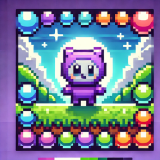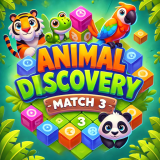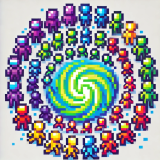Word Search Games have surged to the top of app store charts in 2024, capturing the attention of millions with their engaging and intellectually stimulating gameplay. These games have become a favorite pastime for many, offering a perfect blend of fun and mental exercise. Their rise in popularity can be attributed to their innovative design, accessibility, and the way they connect with players on both a personal and competitive level.
In 2024, Word Search Games are not just about finding words or solving puzzles; they’ve evolved into dynamic and social experiences that keep players hooked. Whether it’s through intricate crossword puzzles, challenging anagrams, or competitive word formation, these games offer something for everyone. Combining clever game mechanics, advanced technology, and strategic marketing has made Word Search Games a staple on the app store.
Let’s explore what makes Word Search Games so compelling and how they have become leaders in the gaming world this year.
What is a Word Search Game?
Word Search Game is a puzzle game where players find hidden words within a grid of letters. The words can be placed horizontally, vertically, or diagonally, and the objective is to locate all the words from a provided list. They are designed to test and improve players’ vocabulary, spelling, and cognitive skills while providing a fun and engaging experience.
Here’s a closer look at what defines Word Search Games:
1. Core Gameplay Mechanics
1.1 Word Creation:
Many Word Search Games challenge players to form words from a given set of letters. This could be as simple as creating words from letter tiles or as complex as solving crossword puzzles.
1.2 Puzzle Solving:
Word Search Games often include puzzles that require players to find hidden words or complete word-based challenges. These puzzles can vary in difficulty, offering a range of challenges from easy to expert.
1.3 Scoring and Progression:
Players earn points or advance through levels by completing word-based tasks. Strategic word formation and solving increasingly difficult puzzles can achieve high scores and progress.
2. Popular Types of Word Search Games
2.1 Crossword Puzzles:
These involve filling in a grid based on clues provided. Each word fits into a specific place in the grid, and the goal is to complete the puzzle by solving all the clues.
2.2 Scrabble-like Games:
Players form words on a board from letter tiles, with each letter having a point value. The goal is to make the highest-scoring words to win.
2.3 Word Search Games:
In these games, players look for words hidden within a grid of letters. Words may be arranged in various directions, making the search challenging and engaging.
2.4 Anagram Games:
Players rearrange letters to form new words. This type of game tests players’ ability to spot patterns and create valid words from jumbled letters.
3. Key Statistics:
>> According to a 2024 report by Newzoo, Word Search Games are among the top 10 most-played genres on mobile devices, with millions of daily active users worldwide.
>> A survey by Statista found that over 60% of mobile gamers have played Word Search Games in the past year, highlighting their widespread appeal and engagement.
Example of Word Search Game Mechanics
Scenario:
Imagine you’re playing a World Search Game where you’re given a set of letters: P, T, O.
Objective:
Your goal is to create as many words as possible using these letters. You can use each letter only once per word, and the words should be valid according to the game’s dictionary.
Possible Words:
- Pot – A simple three-letter word made from all three letters.
- Top – Another three-letter word using the same set of letters but arranged differently.
- To – A two-letter word made from just the letters T and O.
Additional Notes:
- Some Word Search Games might also accept plural forms or different variations if allowed by the game rules.
- The challenge often increases as you are given more letters or additional constraints.
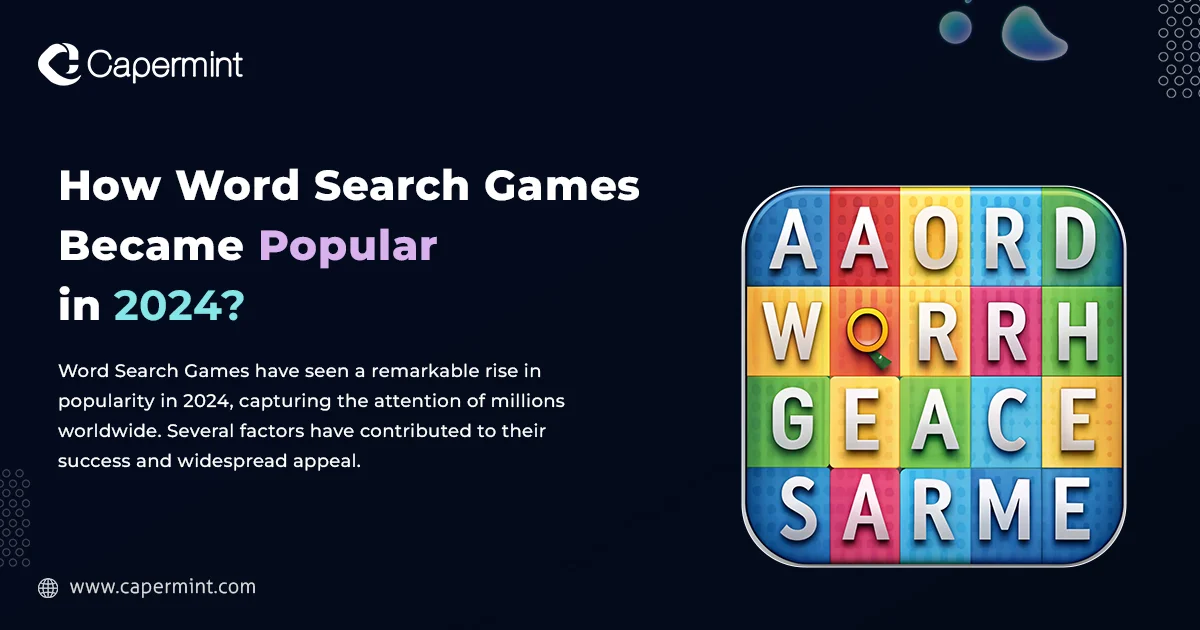
Word Search Games have seen a remarkable rise in popularity in 2024, capturing the attention of millions worldwide. Several factors have contributed to their success and widespread appeal.
Here’s a look at why Word Search Games are leading the app charts this year:
1. Engaging and Simple Mechanics
Word Search Games offer a perfect blend of simplicity and challenge. Players enjoy the straightforward rules and the mental stimulation these games provide. The core mechanics—forming words from a set of letters—are easy to understand, yet they offer endless variety and difficulty, keeping players engaged.
1.1 User Engagement:
According to a recent study, players spend an average of 20 minutes per session on Word Search Games, which is higher than many other mobile game genres.
1.2 Addictive Gameplay:
The mix of simplicity and challenge keeps players coming back for more, creating a compelling loop that enhances player retention.
2. Rise of Mobile Gaming
The surge in mobile gaming has been a significant driver behind the popularity of Word Search Games. With the increasing capabilities of smartphones and tablets, developers can create sophisticated yet accessible games that appeal to a broad audience.
2.1 Smartphone Penetration:
In 2024, over 80% of adults globally own a smartphone, providing a vast user base for mobile games.
2.2 Improved Performance:
Advances in mobile technology have enabled smoother gameplay and better graphics, enhancing the overall user experience.
3. Social Connectivity
Many Word Search Games include social features that allow players to compete with friends or join online communities. These features not only make the games more interactive but also help in building a sense of community among players.
3.1 Leaderboards and Challenges:
Features like global leaderboards and daily challenges foster competition and encourage players to stay engaged.
3.2 Social Sharing:
Players can easily share their achievements on social media, which helps in spreading awareness and attracting new users.
4. Gamification and Rewards
Word Search Games often incorporate gamification elements such as levels, achievements, and rewards, which motivate players to keep playing. These features provide a sense of progress and accomplishment, making the games more enjoyable.
4.1 In-Game Rewards:
Players earn rewards for completing levels or achieving high scores, which keeps them motivated and invested in the game.
4.2 Level Progression:
The gradual increase in difficulty ensures that players are consistently challenged, which adds to the game’s appeal.
5. Increased Accessibility
Word Search Games are designed to be accessible to players of all ages and skill levels. This inclusivity contributes to their widespread popularity, as they appeal to a diverse audience.
5.1 User-Friendly Design:
The intuitive design and easy-to-understand rules make Word Search Games accessible to younger players and those who may not consider themselves avid gamers.
5.2 Cross-Generational Appeal:
The simple yet engaging nature of these games makes them suitable for players of all ages, from children to adults.
6. Marketing and Viral Trends
Effective marketing strategies and viral trends have played a crucial role in the success of Word Search Games. Many games have gained popularity through word-of-mouth recommendations and social media promotions.
6.1 Influencer Endorsements:
Collaborations with popular influencers and content creators have helped reach a wider audience and generate buzz around new Word Search Games.
6.2 Viral Challenges:
Social media platforms have seen viral challenges related to Word Search Games, which contribute to their visibility and attractiveness.
7. Cognitive Benefits
Players are increasingly drawn to Word Search Games for their cognitive benefits. These games help improve vocabulary, enhance problem-solving skills, and keep the mind sharp.
7.1 Mental Stimulation:
Research shows that Word Search Games can improve cognitive functions and memory, making them a popular choice for players looking to exercise their brains.
7.2 Educational Value:
Many players appreciate the educational aspects of Word Search Games, such as learning new words and improving spelling.
Business Models of Word Search Games
Understanding the business models behind Word Search Games is essential for developers and businesses looking to enter the market. These models determine how games generate revenue and sustain their development and operations. Each model offers different strategies for attracting and retaining players while maximizing profits.
1. Freemium Model
The freemium model is one of the most common business models for Word Search Games. In this approach, the game is free to download and play, but players can purchase additional features or content. This model attracts a large user base by lowering the barrier to entry.
Example: Many popular Word Search Games offer basic gameplay for free while charging for premium features such as extra hints, advanced levels, or an ad-free experience. This model allows players to enjoy the game without initial costs and encourages spending on optional enhancements.
2. Ad-Supported Model
The ad-supported model generates revenue by displaying advertisements within the game. Ads can appear in various formats, including banner ads, interstitial ads, and rewarded videos. This model allows players to access the game for free while developers earn money from ad impressions and clicks.
Example: Word Search Games often use banner ads at the bottom of the screen or full-screen interstitial ads between levels. Rewarded ads, where players watch a video to earn in-game rewards, are also popular. This model helps keep the game accessible while generating revenue from advertisers.
3. In-app purchases
In-app purchases (IAPs) allow players to buy virtual goods or currency within the game. These purchases can range from cosmetic items to gameplay enhancements, providing players with options to customize their experience.
Example: Many Word Search Games offer IAPs such as special power-ups, additional letter packs, or exclusive game modes. These purchases enhance gameplay and offer players more ways to engage with the game.
4. Subscription Model
The subscription model provides players with access to premium features or ad-free experiences through a recurring fee. Subscriptions can be monthly or yearly and offer continuous value to players.
Example: Some Word Search Games use a subscription model to offer benefits like unlimited hints, early access to new content, or exclusive game features. Subscriptions provide a steady revenue stream and help build a loyal player base.
Case Studies: Successful Word Search Games and Their Monetization Strategies!
To understand the success of Word Search Games in 2024, let’s look at some standout examples and their ad monetization breakdown. These case studies highlight how different Word Search Games have achieved impressive growth and player engagement through effective business models.
1. Word Trip – Word Puzzle Game
Developer: Playsimple
Released: May 2017
Last Updated: 2024
Downloads: 50M+
Rating: 4.7
Ad Monetization Breakdown:
- First 10 Minutes:
- Levels 1-5: Rewarded icon fixed on the home screen (optional).
- Levels 5-10: One interstitial ad.
- Levels 10-15: One interstitial ad.
- (Non-intrusive audio ads appear later in the game.)
Insights: Word Trip combines engaging gameplay with a balanced approach to ad monetization. The game uses rewarded ads early on to encourage player participation while avoiding disruption with interstitials. This strategy maintains a high user rating and substantial download numbers.
2. Words of Wonders: Crosswords
Developer: Fugo Games
Released: April 2018
Last Updated: 2024
Downloads: 100M+
Rating: 4.5
Ad Monetization Breakdown:
- First 10 Minutes:
- Levels 1-5: Remove ads option for $12.99.
- Levels 5-10: Clean experience with no ads.
- Levels 10-15: Banner ads start rolling, with optional store rating pop-up and one interstitial ad.
Insights: Words of Wonders uses a hybrid model with a strong focus on user choice. By offering an ad removal option, the game appeals to players who prefer an uninterrupted experience. The gradual introduction of ads helps balance monetization with user experience.
3. Wordscapes
Developer: PeopleFun
Released: June 2017
Last Updated: 2024
Downloads: 100M+
Rating: 4.6
Ad Monetization Breakdown:
- First 10 Minutes:
- Levels 1-5: Banners start rolling, with an option to remove ads for 30 days for $13.99.
- Levels 5-10: Continued display of banner ads.
- Levels 10-15: Introduction of three interstitial ads.
Insights: Wordscapes employs a combination of banner ads and interstitials, with an option for players to remove ads for a fee. This model supports continuous player engagement while generating revenue from both ads and in-app purchases.
Key Features of Successful Word Search Games
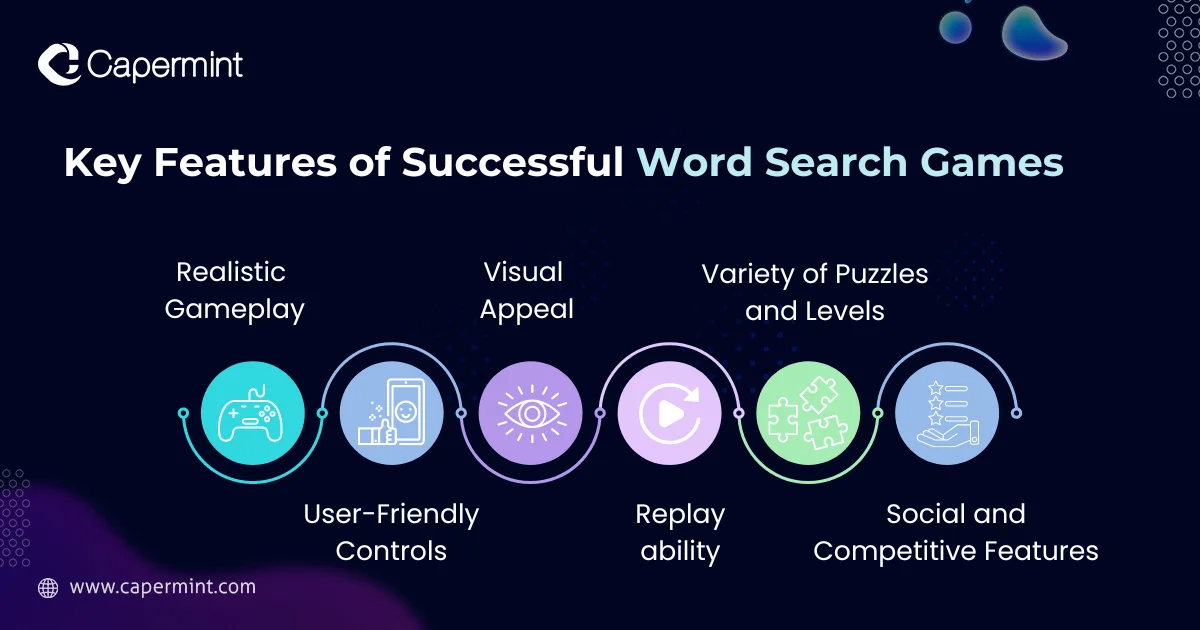
Successful Word Search Games have several standout features that keep players engaged and coming back for more.
Here are the essential elements that make Word Search Games enjoyable and popular:
1. Realistic Gameplay
Realistic gameplay ensures that the game mechanics are smooth and intuitive. Players should easily understand how to form and find words, with clear feedback on their actions. This creates a satisfying and immersive experience, making the game both challenging and fun.
2. User-Friendly Controls
Simple and user-friendly controls are vital. The game should have easy-to-use features for inputting and rearranging letters. A clean and straightforward interface helps players focus on solving puzzles rather than struggling with complex controls.
3. Visual Appeal
A visually appealing design enhances the gaming experience. Attractive graphics and smooth animations make the game more enjoyable to play. Whether it’s a bright and colorful theme or a sleek, minimalist design, the visuals should engage and engage players.
4. Replayability
Replayability keeps players coming back. Word Search Games with various puzzles and levels ensure that there is always something new to tackle. Adding features like daily challenges or new puzzles regularly can keep the game fresh and interesting.
5. Variety of Puzzles and Levels
Offering a variety of puzzles and levels adds to the game’s appeal. Players enjoy having different types of challenges to solve, which prevents the gameplay from becoming repetitive. A range of difficulties and themes keeps the experience dynamic and engaging.
6. Social and Competitive Features
Incorporating social and competitive elements can boost player engagement. Features like leaderboards, achievements, and the ability to compete with friends add an exciting layer of competition. This social aspect encourages players to keep playing and improving their scores.
How to Develop a World Search Game?
Creating a World Search Game involves several key steps. Here’s a simplified guide:
1. Conceptualization
Start by defining the core idea of your game. Decide on the objective, rules, and what makes your game unique. Think about your target audience and what type of word challenges will appeal to them.
2. Design
Plan the game’s layout, puzzles, and user interface. Sketch out how the game board and controls will look. Ensure the design is both functional and visually appealing.
3. Development
Build your game using a development platform like Unity. Write code to create the game mechanics and handle user input. Test features regularly during development to fix issues early.
4. Testing
Test your game thoroughly to catch and fix bugs. Start with internal testing, then move to beta testing with real users. Use their feedback to improve gameplay and user experience.
5. Launch
Prepare for launch by finalizing the game and setting it up on app stores. Create marketing materials and plan your promotional strategy. Make sure everything is ready for a smooth release.
6. Marketing
Promote your game through social media, ads, and partnerships. Share engaging content and interact with your audience. Build a community to keep players interested and attract new ones.
Technologies Used in World Search Game Development
World Search games, often known as “word puzzle” or “word search” games, have gained immense popularity due to their simplicity and mental engagement. Developing these games involves a variety of technologies to ensure smooth gameplay, user interaction, and scalability.
Below is a detailed look at the key technologies used in world search game development.
1. Game Development Engines
Game engines simplify the process of building interactive and scalable word search games. Some of the most popular engines used are:
Unity: A versatile engine, Unity supports both 2D and 3D game development and is known for its user-friendly interface and extensive community support. It allows developers to create cross-platform games with ease.
Unreal Engine: Although primarily used for 3D games, Unreal Engine can also be used for 2D games. Its Blueprint Visual Scripting feature makes it easy to design complex logic without needing to write code.
Cocos2d-x: This is a lightweight, open-source engine designed for 2D game development. Its simplicity and ease of integration make it a good choice for word search games, especially on mobile devices.
2. Programming Languages
Developers typically use certain languages based on the game engine and platform:
C#: Commonly used with Unity, C# is an object-oriented language. Its strong community support and ease of integration with game engines make it a top choice for developers.
C++: Used with Unreal Engine, C++ offers more control over the hardware, which can be helpful in optimizing performance, particularly in more complex games.
JavaScript: JavaScript, along with frameworks like Phaser, is widely used for browser-based word search games. It’s ideal for developers looking to create web versions of their games.
Python: For simple, single-player word search games, Python, along with libraries like Pygame, offers a quick and efficient way to develop games with minimal complexity.
3. Graphics and User Interface (UI) Design Tools
A key component of word search games is the visual representation of letters and grids. The following tools are essential for creating user-friendly and engaging designs:
Adobe Photoshop/Illustrator: These are the go-to tools for creating high-quality 2D assets like grids, backgrounds, and icons.
Figma/Sketch: For designing the user interface and layout of the game, these tools are widely used. They offer collaborative features that allow designers and developers to work together in real-time.
Spine: If the game requires animated characters or effects, Spine is an excellent tool for creating smooth 2D animations.
4. Backend Technologies
Although word search games are typically simple, multiplayer or leaderboard-based games require robust backend technologies to handle user data, progress, and game state. Some backend technologies include:
Node.js: A popular server-side framework, Node.js is ideal for real-time applications. It allows for event-driven programming, which helps in managing user interactions and game events seamlessly.
Firebase: For mobile-based word search games, Firebase offers cloud-based storage, real-time databases, and user authentication, making it a popular backend solution.
Amazon Web Services (AWS): AWS is a powerful cloud platform that offers services like S3 for storage, Lambda for serverless architecture, and RDS for scalable databases.
5. Artificial Intelligence (AI)
AI in word search games can enhance the gameplay experience by creating adaptive difficulty levels or generating random puzzles based on a player’s progress. AI is typically implemented using:
Machine Learning (ML): For generating dynamic puzzles, ML models can be trained to adapt the difficulty level based on the player’s performance.
Natural Language Processing (NLP): In some word search games, NLP is used to recognize patterns in word searches or even create thematic puzzles around specific topics.
6. Cross-Platform Development Tools
World search games are typically played on mobile phones, tablets, or browsers. Developing cross-platform compatibility is essential for reaching a broad audience. The following tools ensure that the game works seamlessly across different platforms:
Xamarin: Used for cross-platform mobile app development, Xamarin allows developers to write code once and run it on both iOS and Android devices.
React Native: Another popular choice for cross-platform mobile game development, React Native allows developers to build games using JavaScript, making it ideal for simpler 2D games like word search.
HTML5: For browser-based games, HTML5 is widely used. It offers excellent compatibility with modern browsers and allows for easy distribution across the web.
7. Monetization Platforms
Most word search games are free to play, but developers monetize through ads, in-app purchases, or premium versions. The following technologies are commonly used:
Google AdMob: This is a popular mobile advertising platform that allows developers to integrate banner ads, interstitials, and rewarded ads into their games.
Unity Ads: Integrated with the Unity engine, Unity Ads allows developers to offer video ads to players for rewards such as hints or extra time.
Apple In-App Purchase and Google Play Billing: For mobile games, developers integrate these platforms to offer premium features or ad-free versions of the game.
8. Database Management
Word search games, especially those that are multiplayer or have leaderboards, need efficient database management to store user information, game progress, and other data.
SQLite: A lightweight database, SQLite is ideal for mobile games that store local game data such as player progress or settings.
MySQL: For more robust database management, especially in multiplayer games, MySQL is a popular choice. It offers fast and reliable performance for managing large datasets.
How Much Does It Cost to Develop a World Search Game?
Developing a World Search Game can vary in cost based on several factors. Here’s a general breakdown:
Basic Development Costs:
Word search game development would cost around $10,000 – $20,000 for a single platform (Android or iOS) with basic functionalities. If you want to develop a Ludo game with all the advanced features and support multiple mobile platforms then it costs higher based on functionalities.
Development Cost Factors:
1. Company Type
1.1 Small Companies:
Charge between $15 and $40 per hour. These are often budget-friendly but may offer limited features.
1.2 Intermediate Companies:
Charge between $50 and $100 per hour. They provide a balance between cost and quality.
1.3 Enterprise-Level Companies:
Charge between $100 and $250 per hour. These companies offer extensive experience and high-end features.
2. Complexity of the Game:
The number of levels, the complexity of puzzles, and the quality of graphics all affect the cost.
3. Development Team:
Hiring skilled professionals, including designers, developers, and testers, adds to the overall expense.
4. Platform:
Developing for multiple platforms (iOS and Android) will increase the cost compared to developing for just one.
5. Features:
Additional features such as social integration, in-app purchases, and advanced visual effects can drive up costs.
Overall Cost Estimate:
- Basic World Search Game: $10,000 to $20,000
- Advanced World Search Game: $30,000 to $60,000 or more
For a detailed quote and to discuss your specific needs, feel free to contact us. Our experienced team can help you create a high-quality World Search Game that fits your budget.
How much time is required to develop a world search game?
The time needed to develop a World Search Game can vary based on its complexity and scope.
Here’s a general timeline:
Basic World Search Game: 2-4 months
Word Search Game with minimal features and a single platform, expect a development time of around 2 to 4 months.
Medium Complexity: 4-8 months
If your World Search Game includes more advanced features, multiple levels, and additional platforms, the development time can extend to 4 to 8 months.
High Complexity: 8-12 months
For a feature-rich Word Search Game with complex puzzles, high-quality graphics, and extensive social or competitive features, development may take between 8 to 12 months.
Top 4 Word Search Games in 2024
1. Wordscapes
Play Store: Wordscapes
App Store: Wordscapes
Description: Combine letters to find words and solve crossword puzzles across stunning landscapes.
Downloads: 100M+
Company: PeopleFun
2. Word Trip
Play Store: Word Trip
App Store: Word Trip
Description: Travel the world while solving word puzzles and completing exciting levels.
Downloads: 50M+
Company: BitMango
3. Word Collect – Word Puzzle Games
Play Store: Word Collect
App Store: Word Collect
Description: Swipe letters to create words and fill in the crossword puzzles.
Downloads: 10M+
Company: Super Lucky Games
4. Words of Wonders: Crossword
Play Store: Words of Wonders: Crossword
App Store: Words of Wonders: Crossword
Description: Discover hidden words and solve crosswords in a visually stunning environment.
Downloads: 50M+
Company: Fugo Games
Why choose Capermint for world search game development?
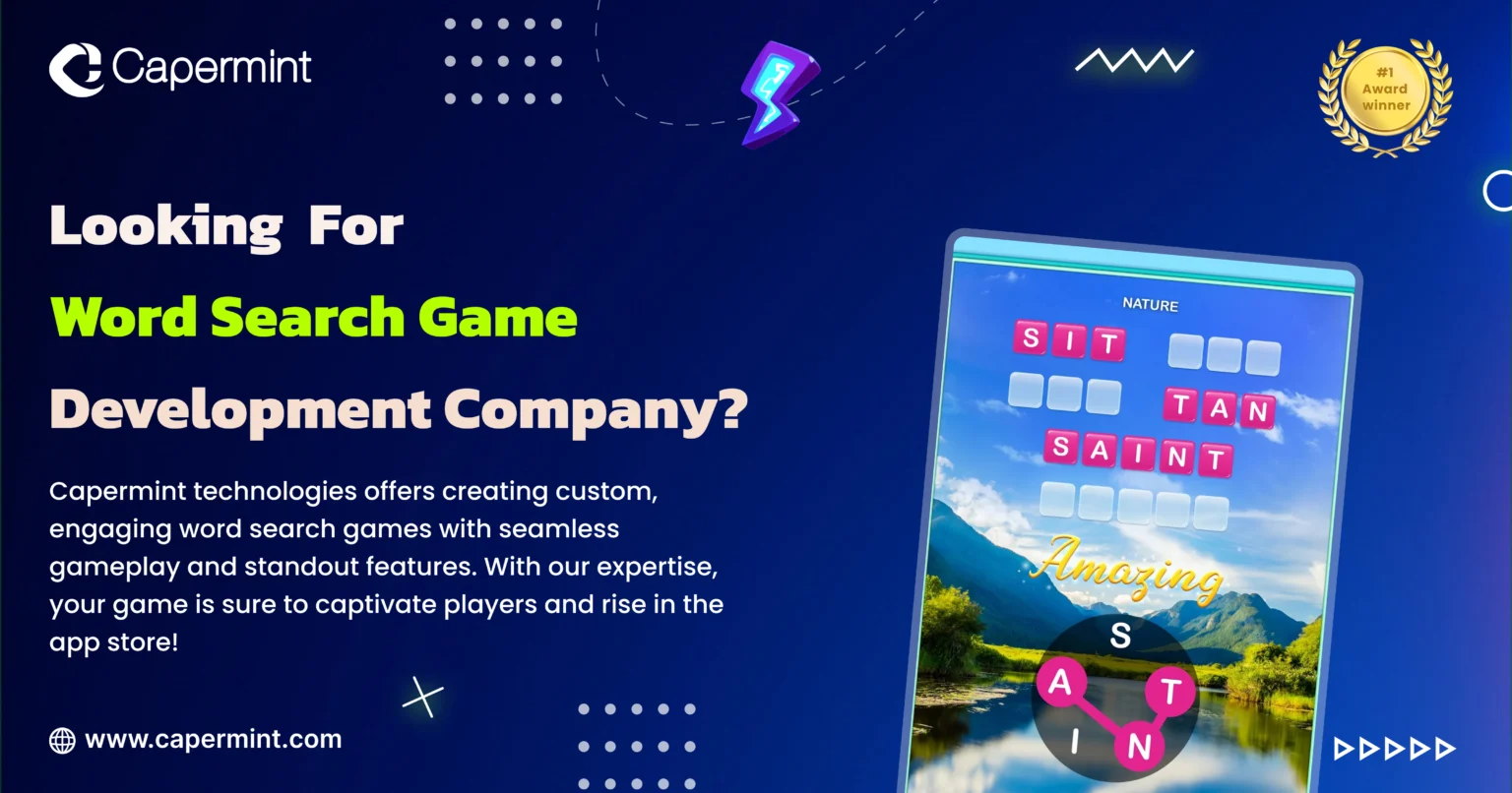
Capermint Technologies excels in World Search Game development, making us a top choice for businesses looking to create engaging and innovative Word Search Games.
Here’s why:
1. Expertise
Our team has a deep understanding of World Search Game mechanics and trends. We bring years of experience to create Word Search Games that engage and challenge players.
2. Innovation
We use the latest technologies and design techniques to build Word Search Games that are not only fun but also unique. Our approach ensures that your game stands out in a crowded market.
3. Customer-Centric Approach
At Capermint, we focus on your vision. We collaborate closely with you throughout the development process to ensure that your game meets your expectations and resonates with your audience.
4. Proven Track Record
We have a solid track record of successful World Search Game projects and a portfolio that showcases our ability to deliver high-quality, engaging games. Our satisfied clients are a testament to our commitment to excellence.
Conclusion
In 2024, Word Search Games continue to engage players with their blend of simplicity and challenge. From classic favorites like Wordscapes to new contenders, these games have proven their staying power in the app store charts. Their success is driven by engaging gameplay, innovative features, and strong business models.
As the demand for high-quality Word Search Games grows, choosing the right development partner is crucial. Capermint Technologies offers unparalleled expertise, innovative solutions, and a commitment to excellence in World Search Puzzle Game development. Our team is dedicated to turning your vision into a successful and engaging game that stands out in the competitive market.
Contact us today if you’re ready to create a World Search Game that will engage users and climb the app store charts. Let’s develop the next #1 World Search Game together!





